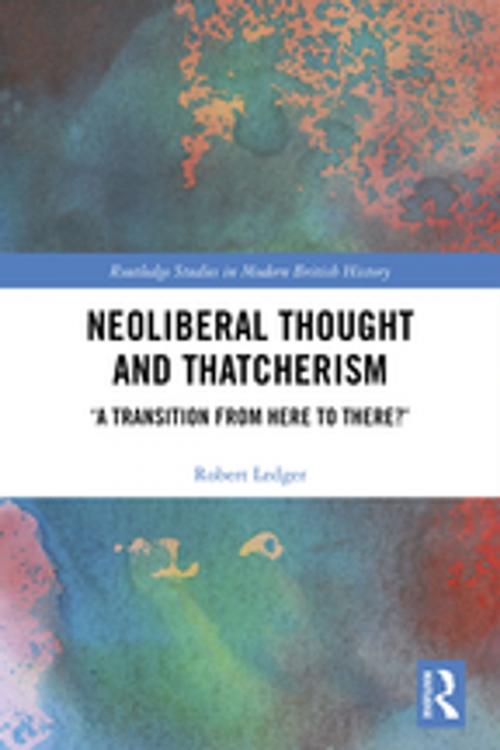Neoliberal Thought and Thatcherism
‘A Transition From Here to There?’
Business & Finance, Economics, Theory of Economics, Economic History, Nonfiction, History| Author: | Robert Ledger | ISBN: | 9781351987646 |
| Publisher: | Taylor and Francis | Publication: | December 1, 2017 |
| Imprint: | Routledge | Language: | English |
| Author: | Robert Ledger |
| ISBN: | 9781351987646 |
| Publisher: | Taylor and Francis |
| Publication: | December 1, 2017 |
| Imprint: | Routledge |
| Language: | English |
The premiership of Margaret Thatcher has been portrayed as uniquely ideological in its pursuit of a more market-based economy. A body of literature has been built on how a sharp turn to the right by the Conservative Party during the 1980s - inspired by the likes of Milton Friedman and Friedrich Hayek - acted as one of the key stepping stones to the turbo-charged capitalism and globalization of our modern world. But how ‘neoliberal’ was Thatcherism? The link between ideas and the Thatcher government has frequently been over-generalized and under-specified. Existing accounts tend to characterize neoliberalism as a homogeneous, and often ill-defined, group of thinkers that exerted a broad influence over the Thatcher government. In particular, this study explores how Margaret Thatcher approached special interest groups, a core neoliberal concern. The results demonstrate a willingness to utilize the state, often in contradictory ways, to pursue apparently more market orientated policies. This book - through a combination of archival research, interviews and examination of neoliberal thought itself - defines the dominant strains of neoliberalism more clearly and explores their relationship with Thatcherism.
The premiership of Margaret Thatcher has been portrayed as uniquely ideological in its pursuit of a more market-based economy. A body of literature has been built on how a sharp turn to the right by the Conservative Party during the 1980s - inspired by the likes of Milton Friedman and Friedrich Hayek - acted as one of the key stepping stones to the turbo-charged capitalism and globalization of our modern world. But how ‘neoliberal’ was Thatcherism? The link between ideas and the Thatcher government has frequently been over-generalized and under-specified. Existing accounts tend to characterize neoliberalism as a homogeneous, and often ill-defined, group of thinkers that exerted a broad influence over the Thatcher government. In particular, this study explores how Margaret Thatcher approached special interest groups, a core neoliberal concern. The results demonstrate a willingness to utilize the state, often in contradictory ways, to pursue apparently more market orientated policies. This book - through a combination of archival research, interviews and examination of neoliberal thought itself - defines the dominant strains of neoliberalism more clearly and explores their relationship with Thatcherism.















